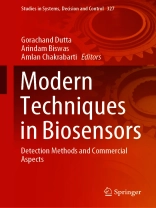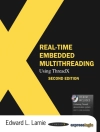This book focusses on recent advances and different research issues in the biosensor technology and also presents theoretical, methodological, well-established and validated empirical work dealing with the technology. The book addresses challenges for the development of a point-of-care test platform. The book also describes printed chip-based assay (Lab-on-a-Chip, Lab-on-a-PCB) for rapid, inexpensive, multiplex detection of disease biomarkers in real samples. It aims to overcome existing barriers for Lab-on-a-Chip commercialization (lack of cost effective mass manufacturing methods, self-contained, fully autonomous operation and user-friendliness). Different advanced techniques including electrochemical, optical, mass, colorimetric and signal amplification strategies describe early stage disease diagnosis. The book gathers scientific and technological novelties and advancements already developed or under development in the academic and research communities. It covers a vast audience from basic science to engineering and technology experts and learners.
Tabella dei contenuti
Nanomaterials, classifications, and properties and their use in clinical diagnostics.- Electrochemical Biosensors for Point-of-Care Devices.- Nanobiomaterials and nanocomposites in cancer theranostics.- Biosensor signal amplification strategies for early stage disease detection.- Nano biomaterials: immobilization and biosensing.- Label-free and wash-free methods in biosensing.- Biosensor development for drug discovery and drug delivery.- Microfluidics system utilizing various biomaterials for medical applications.- Infectious disease diagnosis based on nanobiomaterials.- Biosensors and Multiplexing.- Lab-on-PCB: tackling the μTAS commercial upscaling bottleneck.- Commercialization and Future perspectives of biosensors.- THz Biosensors: Fundamentals and Applications.
Circa l’autore
Dr. Gorachand Dutta is an Assistant Professor at the School of Medical Science and Technology, IIT Kharagpur. He received M.Sc. degree in Chemistry from Indian Institute of Technology, Guwahati, India. His research interests include the design and characterization of portable biosensors, biodevices and sensor interfaces for miniaturized systems and biomedical applications for point-of-care testing. He received his Ph.D. in Biosensor from Pusan National University, South Korea, where he developed different class of electrochemical sensors and studied the electrochemical properties of gold, platinum and palladium-based metal electrodes. He completed his postdoctoral fellowships in Michigan State University, USA, and Pusan National University, South Korea, University of Bath, UK.
Dr. Arindam Biswas received Ph.D. from NIT Durgapur in 2013. He received prestigious BK21PLUS Fellowship, Republic of Korea 2015, Special Appointed Associate Professor (Visiting), Shizuoka University, Japan, in 2017, DST-JSPS Invitation Research Grant Award in 2020, IE(I) Young Engineer Award: 2019–2020, Institute of Engineers, India. Presently, Dr. Biswas is working as an Assistant Professor at Kazi Nazrul University, India. He has 98 publications in in refereed journals and conferences. Dr. Biswas received research grant from SERB, Government of India in 2017, Centre of Biomedical Engineering, Japan, for two consecutive years 2019–2020 and 2020–2021. Presently, Dr. Biswas is serving as an Associate Editor of Cluster Computing, Springer.
Amlan Chakrabarti is a Full Professor of Information Technology in the A.K.Choudhury School of Information Technology at the University of Calcutta. He was a Postdoctoral Fellow at the School of Engineering, Princeton University, USA during 2011–2012. He is the recipient of DST BOYSCAST fellowship award in Engineering Science in 2011, Indian National Science Academy (INSA) Visiting Faculty Fellowship in 2014, JSPS Invitation Research Award in 2016 and Erasmus Mundus Leaders Award from EU in 2017 and Hamied Visiting Fellowship from Cambridge University in 2018. He has been associated as a Visiting Professor at the University of Cambridge, City University of London, University of Oradea Romania, SUNNY Buffalo USA, GSI Helmholtz Research Laboratory Germany, University of Bremen Germany, CERN Geneva, Kyushu Institute of Technology Japan, etc. He has published around 130 research papers in refereed journals and conferences.












